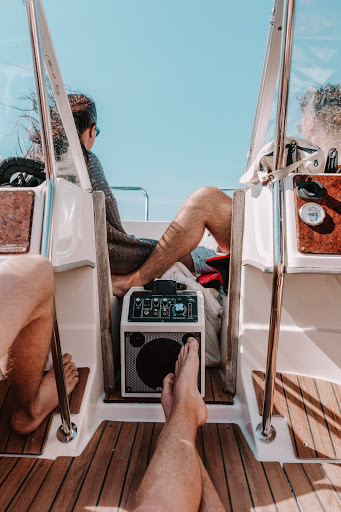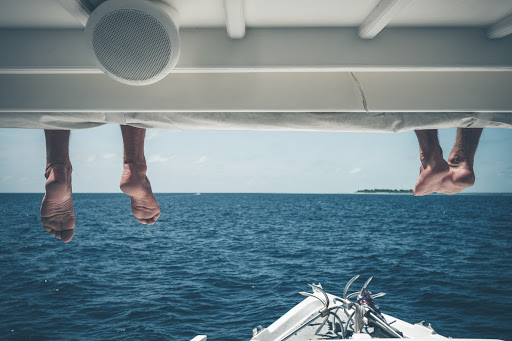 Photo by Eirik Skarstein on Unsplash
Photo by Eirik Skarstein on Unsplash
From headaches, nausea and cold sweats to dizziness and vomiting, seasickness can have a number of draining and downright debilitating symptoms that have the power to completely ruin your vacation. Fortunately, there are many ways you can help your body adapt to these atypical motions and conditions, and take back control of your stomach while you’re at sea. Here are some of the best techniques for overcoming seasickness quickly and efficiently:
1. Minimize your consumption
Even though it might help calm your nerves, try to minimize your consumption of food, drinks, and alcoholic beverages both before and during your sea travels, especially those that hinder your digestion or make you feel surprisingly full. It would also be a good idea to avoid foods with heavy spices or strong smells, as they tend to exacerbate nausea and seasickness in most people. However, don’t forget to drink plenty of water and electrolyte-laden drinks, even if you keep vomiting, in order to calm your stomach and stay hydrated during the trip.
2. Try to desensitize yourself
Desensitization therapy is arguably one of the most efficient ways of minimizing the symptoms and even curing motion sickness altogether. A simple practice you can try during the months or weeks leading up to your trip, desensitization therapy works by exposing yourself to short periods of activities that cause motion sickness symptoms, and then working up to longer periods over time. For instance, if you tend to experience seasickness, start by taking a boat out to a calmer lake or river, and then work your way up to faster sea scooters or even bigger ferry boats, in order to allow your body to adjust to these activities.
3. Take control of the experience

Photo by Oliver Sjöström on Unsplash
One of the easiest ways to minimize the amount of seasickness you experience on board is to thoroughly plan your holiday in advance, opting for a personalized experience that will suit your needs the most. For example, if you want to book a Mediterranean yacht charter vacation, choose a company that will allow you to make your own itinerary with the help of experienced specialists. That way, you can opt for routes that incorporate a number of stops and land tours, thus minimizing the amount of time you spend at sea.
4. Do your best to keep still
Although this idea might seem absurd when you’re traveling by boat or ship, do your best to stay as still as possible in order to minimize the symptoms of seasickness. What this means is to try to find an area (usually somewhere in the middle of the vessel) where you will experience the least amount of movement. Every ship needs to rotate, pivot and bounce around a center of gravity; do your best to locate it, and find a place where you can sit or lay down comfortably in that area, to feel the least movement from the ship and reduce common motion sickness symptoms.
5. Stay calm and ride it out

Photo by Philipp Kämmerer on Unsplash
Considering the fact that our bodies possess an incredible ability to adapt to any situation and accommodate their responses, seasickness tends to clear up on its own after approximately three days. If you focus on this fact and believe that your symptoms will go away sooner than you thought, you might even rid yourself of sea sickness completely. Alternatively, you can also try to distract yourself by practicing breathing techniques or counting down backward from 100, in order to stay more calm and relaxed at sea.
6. Opt for seasickness medication
If none of these techniques help you overcome seasickness and you still keep experiencing severe symptoms, then the only option left is to buy over-the-counter motion sickness medication or even talk to your doctor about prescribing stronger and more effective treatments. However, it’s important to note that most motion sickness medications are most effective when taken 30 to 60 minutes prior to sickness, and can even have negative side effects, such as dry mouth and drowsiness, which is why they should always be considered as a last resort.
As long as you care for your body well and take appropriate precautions before your next vacation, seasickness can be treated quickly and efficiently. Above all, it’s important to stay calm and remember that it’s just a passing state that will end eventually.



